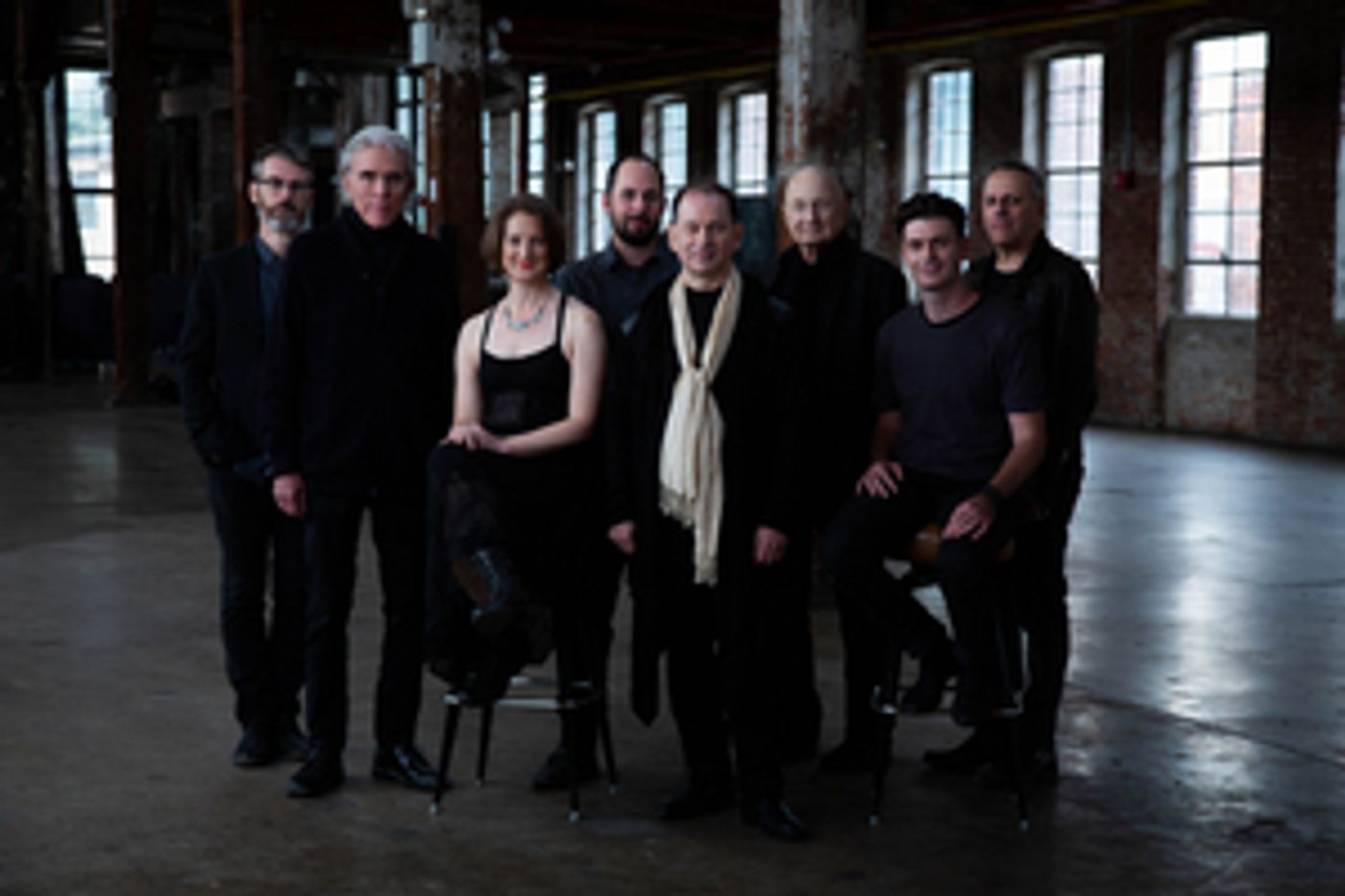Philip Glass Ensemble Gives Philadelphia Premiere Of MUSIC IN TWELVE PARTS

The Philip Glass Ensemble (PGE) will give the Philadelphia premiere of Philip Glass's monumental work Music in Twelve Parts presented by the Annenberg Center for the Performing Arts, University of Pennsylvania on Saturday, February 29, 2020 at 6pm. Music in Twelve Parts runs five hours, with two intermissions and a dinner break. This marks the first performance in Philadelphia by the Philip Glass Ensemble in 21 years.
Music in Twelve Parts, written by Philip Glass between 1971 and 1974, is a deliberate, encyclopedic compendium of techniques of repetition the composer had been evolving since the mid 1960s. It holds an important place in Glass's repertory - not only from a historical vantage point (as the longest and most ambitious concert piece for The Philip Glass Ensemble) but from a purely aesthetic standard as well, because Music in Twelve Parts is both a massive theoretical exercise and a deeply engrossing work of art.
Of the work, Philip Glass writes, "Music in Twelve Parts would most likely be classified as a minimal work, it was a breakthrough for me and contains many of the structural and harmonic ideas that would be fleshed out in my later works. It is a modular work, one of the first such compositions, with twelve distinct parts which can be performed separately, in one long sequence, or in any combination or variation."
The Philip Glass Ensemble comprises the principal performers of the music of Philip Glass. In 1968, Glass founded the PGE in New York City as a laboratory for his music. Its purpose was to develop a performance practice to meet the unprecedented technical and artistic demands of his compositions. In pioneering this approach, the PGE became a creative wellspring for Glass, and its members remain inimitable interpreters of his work.
The artists of the PGE recognize their unique position in the history of music of the past half-century and passing on that legacy is part of their practice. A deep dedication to educating the next generation of musicians is integral to the PGE's work, both on tour and as the Ensemble-in-Residence at The Philip Glass Institute at The New School.
The PGE debuted at the Whitney Museum of American Art in 1969, and in its early years performed primarily in the galleries, artist lofts, and museums of SoHo's then-thriving artistic community. In the five decades since, the PGE has performed in world-renowned music festivals and concert halls across five continents, and has made records with Sony, Nonesuch, and Orange Mountain Music.
Many of Philip Glass's most celebrated works were expressly composed for the PGE: its core concert pieces Music in Twelve Parts, Music in Similar Motion, and Music with Changing Parts; the opera and musical theater projects Einstein on the Beach, Hydrogen Jukebox, 1000 Airplanes on the Roof, Monsters of Grace; and the full-length dance works Dance (Lucinda Childs) and A Descent Into the Maelström (Australian Dance Theater). The PGE is most widely acclaimed for its soundtracks to Godfrey Reggio's trilogy of wordless films: Koyaanisqatsi, Powaqqatsi, and Naqoyqatsi. It is also featured in Glass's operas La Belle et la Bête and The Photographer.
The members of the PGE are Michael Riesman, music director and keyboard (member since 1974); Lisa Bielawa, voice and keyboard (member since 1992); Dan Bora, sound (member since 2010); Jon Gibson, soprano saxophone and flute (member since 1968); Sam Sadigursky (substitute for Jon Gibson for this performance); Peter Hess, alto and tenor saxophones (member since 2016); Ryan Kelly, onstage sound (member since 2014); Mick Rossi, keyboards (member since 2001); Andrew Sterman, flute, piccolo, and soprano saxophone (member since 1992).
The Annenberg Center celebrates the career and impact of Philip Glass, one of our nation's most significant modern composers, with #GLASSFEST. The Annenberg Center first presented the composer with the Philip Glass Ensemble in the 1990s. Through frequent appearances and a long-term commitment to showcasing new music, the Annenberg Center championed Glass and familiarized him to Philadelphia audiences. The three-week #GLASSFEST includes The Crossing choir performing Knee Plays works by Philip Glass and David Byrne (February 21-22, 2020); the Philadelphia premiere of the five-hour entirety of Glass' groundbreaking Music in Twelve Parts, which will be performed by The Philip Glass Ensemble (February 29, 2020); Glass Reflections performed by pianist Jenny Lin in the Egypt Upper Gallery at the Penn Museum (March 5, 2020); and theatrical work, The White Lama: The Improbable Legacy of Theos Bernard (March 13-14, 2020) by multi-disciplinary theatre artist and filmmaker Nikki Appino, featuring a score that will be performed by Glass himself.
Videos

